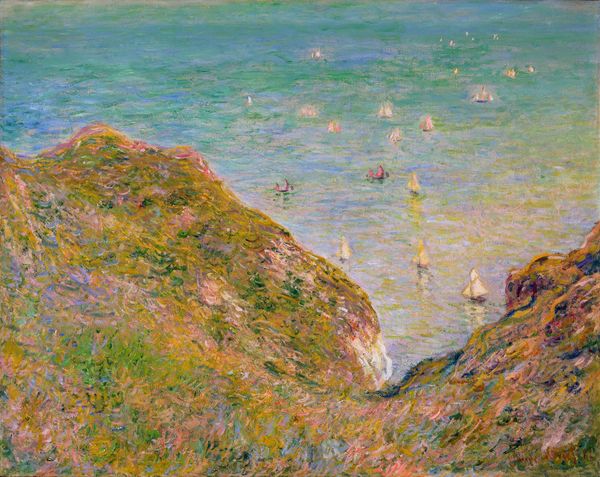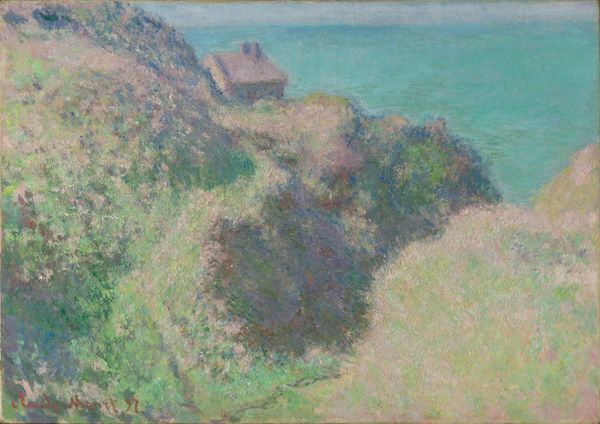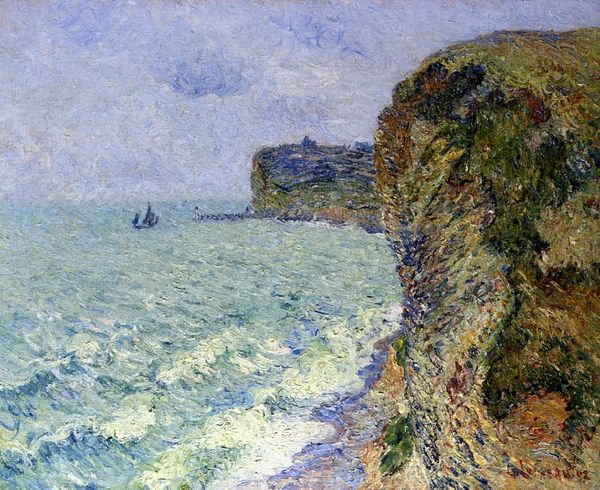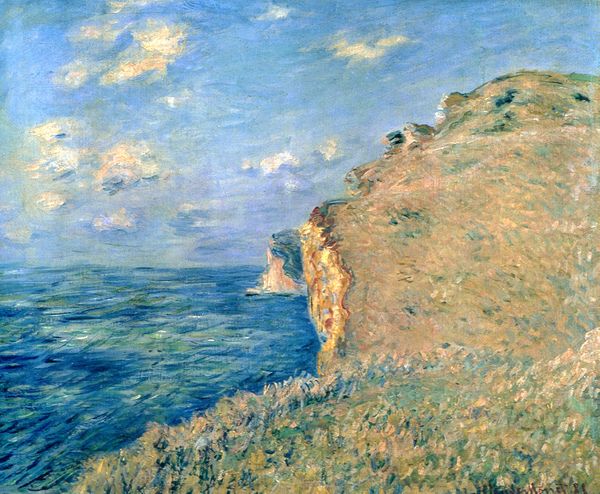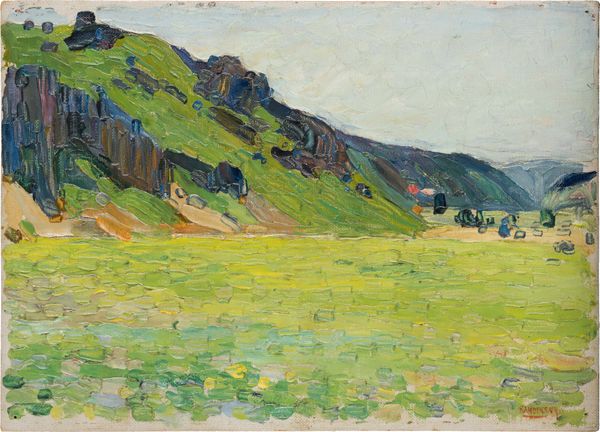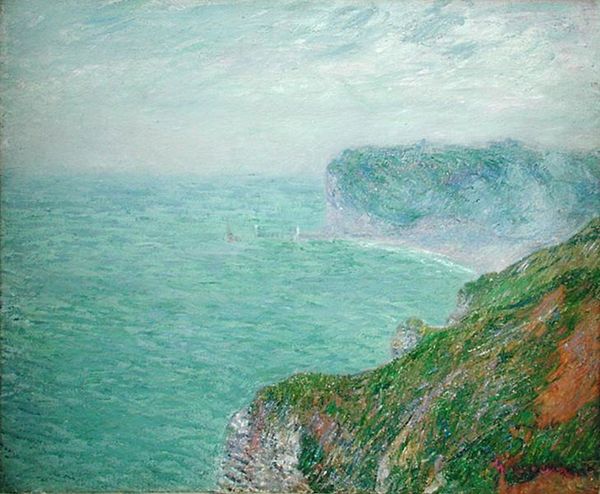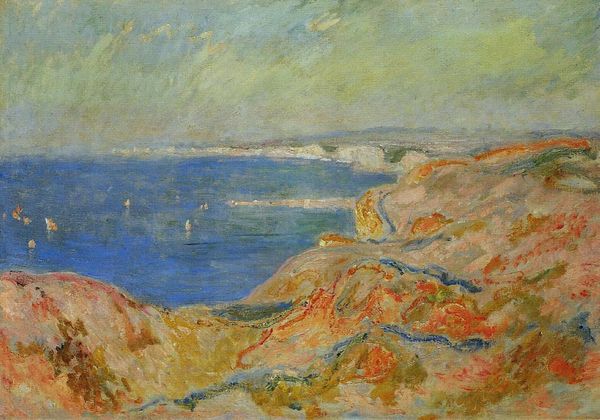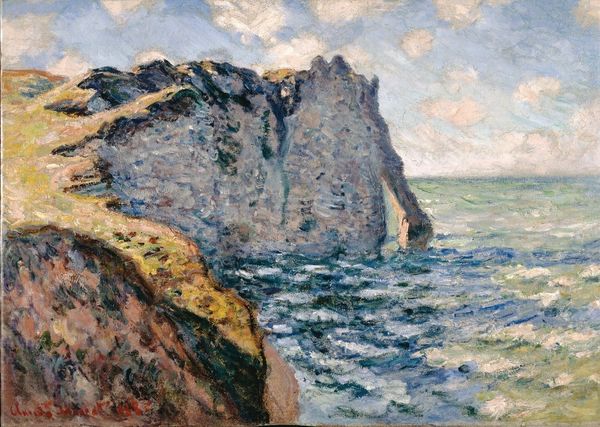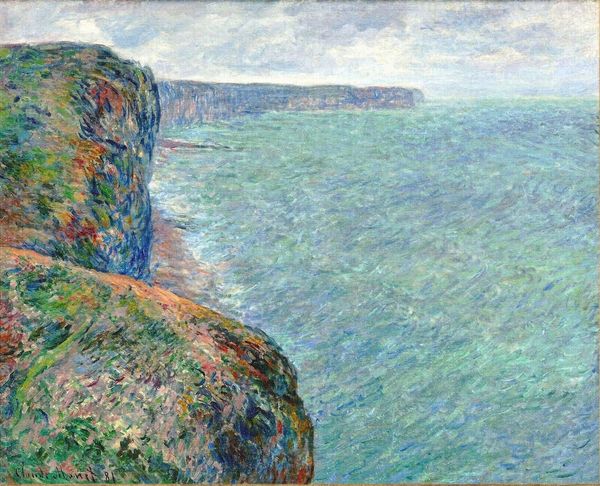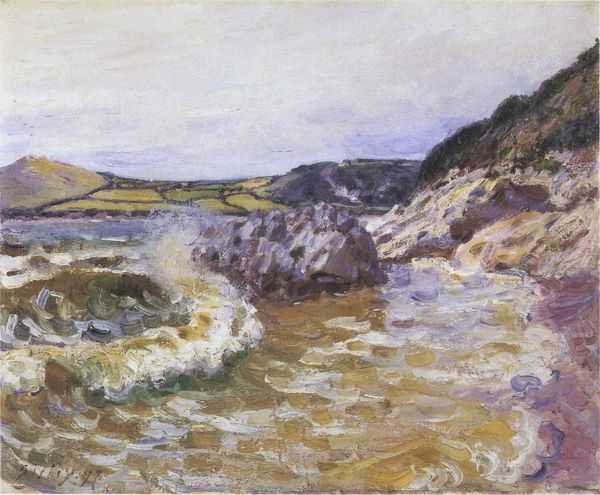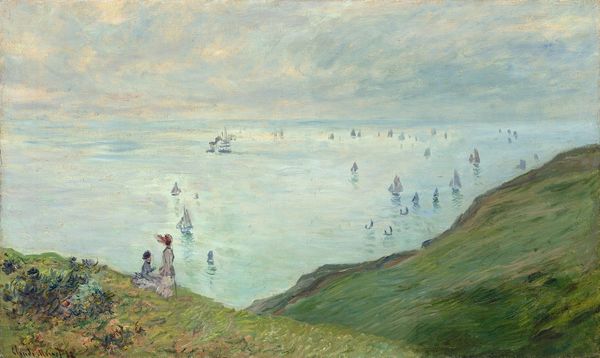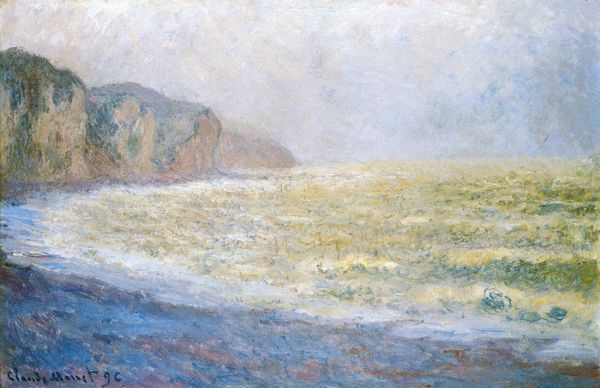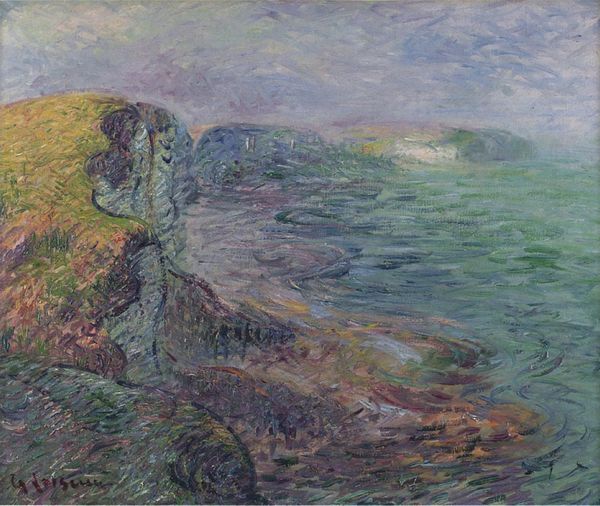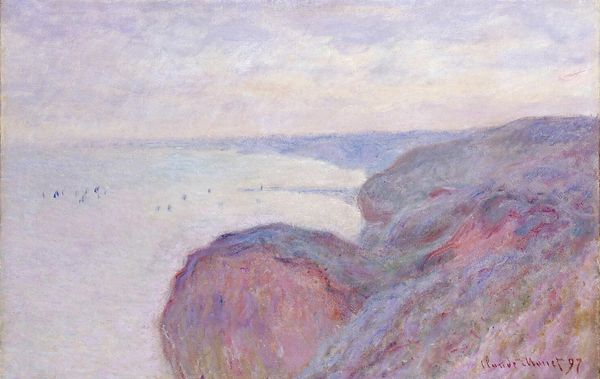
painting, plein-air, oil-paint
#
painting
#
impressionism
#
plein-air
#
oil-paint
#
landscape
#
figuration
#
oil painting
#
seascape
#
modernism
Copyright: Public Domain: Artvee
Curator: Good morning. We’re standing before Claude Monet’s “View over the Sea,” an oil painting from 1882. Editor: You know, it almost vibrates, doesn’t it? It’s like he captured not just the *look* of the sea, but that restless feeling it gives you, that slightly melancholy shimmer. Curator: It’s fascinating how Monet employed plein-air painting to capture the ephemeral qualities of light and atmosphere here. He sought to paint the sensation of seeing, more than a literal representation. The late 19th century, when this was created, saw art grapple more and more with the impression rather than reality. Editor: And it's really visible when we look closer; this isn't about crisp lines or perfect realism, is it? He slaps the paint on there – dashes, strokes. The way the colors blend...makes it move and change even as you stand here. It reminds me of staring at the ocean for hours; the longer you watch, the less still it seems. It shifts and plays with you, right? Curator: Exactly. He was one of the forerunners of Impressionism, moving away from academic techniques and subject matter, toward landscapes and modern life. Think of the rise of seaside resorts during this period, thanks to expanding railway networks. This work reflects the cultural shift towards leisure and the celebration of natural beauty, and the freedom to engage with and appreciate it more intimately. Editor: Seaside resorts, the playground of the bourgeoisie, maybe. Yet this is more complex. There’s a quietness here that goes deeper than just holiday postcards. The grey hues, almost like muted tones… it brings this reflective vibe. Does he idealize? Maybe in some ways but not that false joyful representation that was demanded from a painter, say, 30 years earlier. Curator: Well, while the painting depicts an escape, this one also highlights that growing sense of individualism we were just starting to experience, away from the academic style. He chooses an intimate view and captures an intense moment of reflection on nature. The sea appears vast, but also strangely intimate. Editor: So true. He wasn’t just painting water. He was making poetry out of paint and, if you let yourself sink in, almost asking bigger questions of our human place within something far larger than ourselves. And maybe, too, about how artists can shape the stories, not just mirror society. Curator: Indeed. It is paintings like these that make us reconsider the power art has had in how we represent and relate with landscape and ourselves as part of a world. Editor: Right. This is more than just brushstrokes. It’s the visual equivalent of a deep breath, the sea is a big, unknowable place. Something beautiful.
Comments
No comments
Be the first to comment and join the conversation on the ultimate creative platform.
